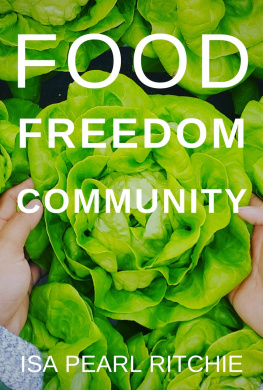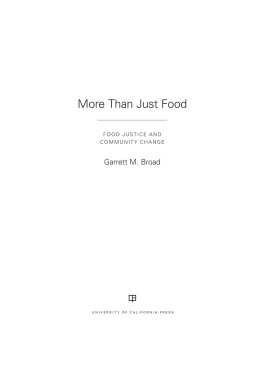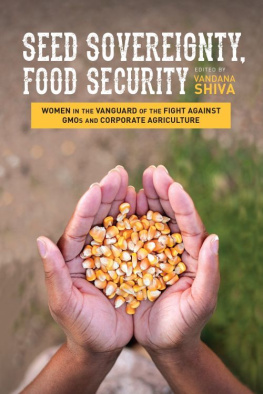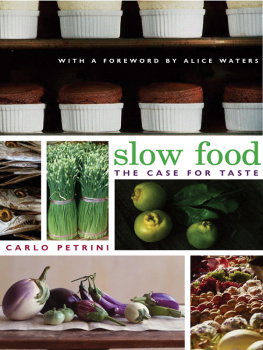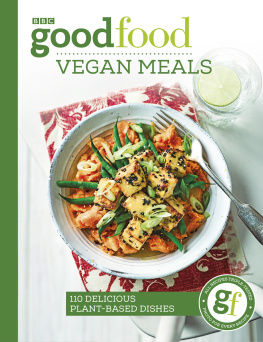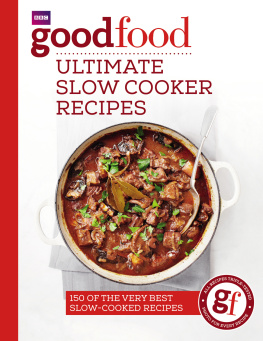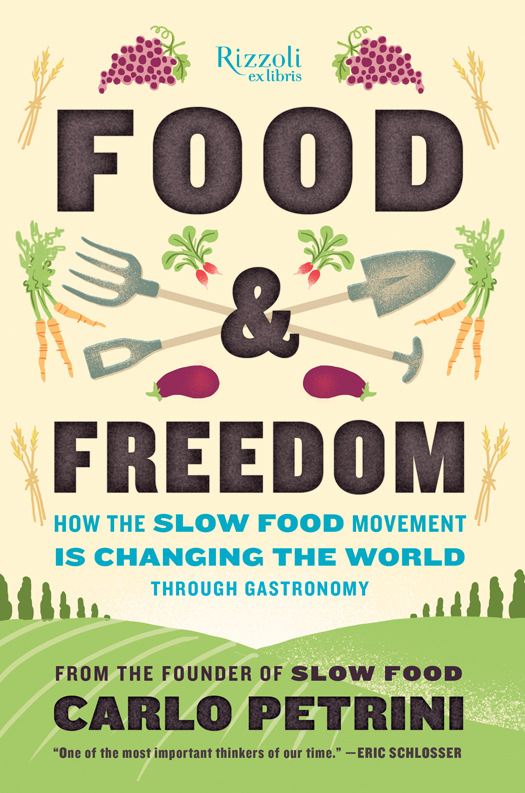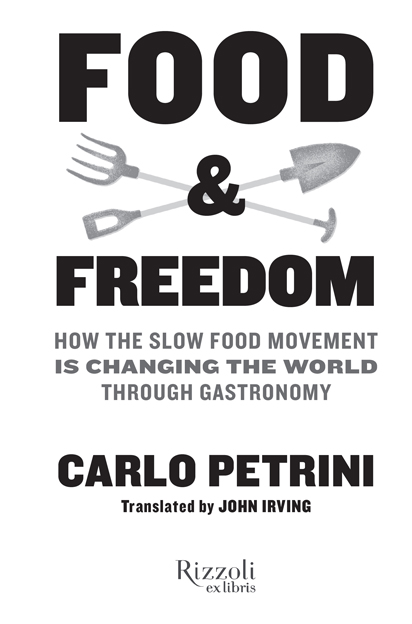PRAISE FOR THE AUTHORS LAST BOOK
A worthy successor to Brillat-Savarin, Carlo Petrini has reinvented the idea of gastronomy for the twenty-first century. An important book.
Michael Pollan, author of The Omnivores Dilemma
Carlo Petrini is one of the most important thinkers of our time, not only about what to eat, but also about how to live. This book is essential reading for anyone who cares about social justice, the environment, and the fundamentals of a good meal.
Eric Schlosser, author of Fast Food Nation
This is the arugment I have been waiting foran irrefutable demonstration that making the right decisions about food can change the world.
Alice Waters, from the Foreword to Slow Food Nation
First published in hardcover in the United States of America in 2015
by Rizzoli Ex Libris, an imprint of
Rizzoli International Publications, Inc.
300 Park Avenue South
New York, NY 10010
www.rizzoliusa.com
Originally published in Italy as Cibo e Libert
Copyright 2013 Giunti Editore S.p.A. Firenze Milano
www.giunti.it
Copyright 2013 Slow Food Editore Srl
Via della Mendicit Istruita, 45 12042 Bra (Cn)
www.slowfood.it
Translation Copyright 2015 John Irving
This ebook edition 2015 Giunti Editore S.p.A. Firenze Milano
This ebook edition 2015 Slow Food Editore Srl
All rights reserved. No part of this publication may be reproduced, stored in a retrieval system, or transmitted in any form or by any means, electronic, mechanical, photocopying, recording, or otherwise, without prior consent of the publishers.
ISBN-13: 978-0-8478-4721-1
v3.1
PROLOGUE
F ood and Freedomits a challenging title! How often the word freedom has been misused down the centuries and is still misused today, usually irrelevantly, often contradictorily. I am not afraid of using it alongside the word food, nor do I have any qualms about playing with it, as I do in the pages that follow. As the grandfather of the late Italian poet and screenwriter Tonino Guerra used to say, I look backward to go forward. If I apply the same principle to the world of gastronomy, I see continuous liberations: liberations that have already happened and liberationsworthwhile, incredible, indispensablethat may happen in the future.
Food and freedom, two words that have never been paired with as much pride as they are today. The centuries-old question of peasants, of the dignity of their labor and their struggles for the land comes to mind. In the early twentieth century, the Mexican Revolution was carried forward to the cry of Tierra y libertad! Today many processes of peacebuildingthe one underway in Colombia, for exampleand of deep-reaching change are still going ahead in the name of the land. Yet something in the globalized panorama has altered profoundly: we are now living in a schizophrenic dimension in which the rural world and the use of land, the two fundamental elements for feeding people, are at the mercy of a system in which food has lost all its complex values and become a commodity that makes sense only as a function of its price. Food is now a product subject to all sorts of speculation. Instead of reducing the problems of the majority of the world population, increased food production has aggravated them and even generated new ones. The most glaring proof of this is the fact that hunger and nutrition have not gone away, while pollution and depletion of resources are multiplying and, save for a few exceptions, farmers continue to be the fifth wheel on the wagon, even if they do own the land they cultivate. The battle for freedom is no longer being fought over the land alone. For the new era and for the new battles ahead, the Mexican Revolution cry of Tierra y libertad! might justifiably be changed into Cibo y libertad!food and freedom.
Food is thus becoming an instrument of liberation. I say this in light of the many stories that touch me personally insofar as they relate the adventure of Slow Food and Terra Madre, and as such are by no means a small part of my own life. In this book I have tried to reconstruct a journey based on my own experience and on the encounters and meetings I have had along the way. The leading players are thus other people: people involved in Slow Food and Terra Madre and people who, in one way or another, have tuned into them from the outside. It is a journey that set out from my home turfBra, a small town in the northwestern Italian region of Piedmontin the 1980s. After ranging far and wide, it has led me to a vision of future prospects so broad that they embrace the whole world.
I begin by speaking about the liberations that have already been achieved, from the one I define as gastronomia liberata,to be freed. It is necessary to liberate diversity as an increasingly effective element of extraordinary creativity, ensuring that the new networks that are now making the world go around assume the characteristics of an unconditionable free network, like the one I have built with my traveling companions at Slow Food and Terra Madre.
All this can be harnessed to develop projects that are certainly ambitioussome might say too ambitiousbut can no longer be delayed if we are to achieve what is ultimately the most important liberation of all.
I refer to gastronomy, which, having been liberated, is now becoming the gastronomy of liberation. The process has taken place over four stages, which I enjoyed traveling through and which I relive again in this book. The gastronomy of liberation: it is a slogan that came to mind looking at Latin America and what is happening over there, which I find thrilling. In Latin America, in fact, I have at last seen the fruits of work whose roots were laid a long way back in time. Anyone unfamiliar with the history of the movement I represent and all the humanity who, for whatever reason, take part in it may find this hard to believe. Liberation, at last, from the most scandalous of yokes and cages: inequality, oppression, the damage it wreaks on the environment and people, the scandal of hunger and malnutrition.
I realize this affirmation may sound pretentious and gratuitously rhetorical, but I am convinced it is true, and I would like you, too, to follow the route that has led me to pronounce it in such a peremptory fashion. The subject in question is, of course, very complex, but the places and the people involved, their activities and their stories, which I recount here, make it clearer and help us understand its ins and outs. It will not be easy to achieve our goal, but in the story you are about to read, few things were easy at the time and no one was overly frightened. After all, we are not alone: all together, we can make it happen.
For the Italian ear, the locution playfully evokes Gerusalemme liberata, an epic poem by Torquato Tasso (15441595), traditionally translated into English, however, as Jerusalem Delivered [translators note].
I. LIBERATED GASTRONOMY
CHAPTER 1
IN THE BEGINNING WAS WINE
B eppe Colla was the president of the Barolo Barbaresco Protection Consortium at the time. It was just after the famous methanol scandal, in which fraudulent winemakers had boosted the alcohol content of their wine by blending it with toxic methanol.no joke living through it all, a stones throw away from so many wine producer friends in Piedmonts Langa wine district. Beppe Collas public tears were a sign not only of despair for the intolerable shame of the scandalnot to mention the likelihood of huge economic lossesbut also of much more than that. Today, thirty years on, I can see it all more clearly.


